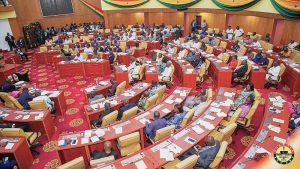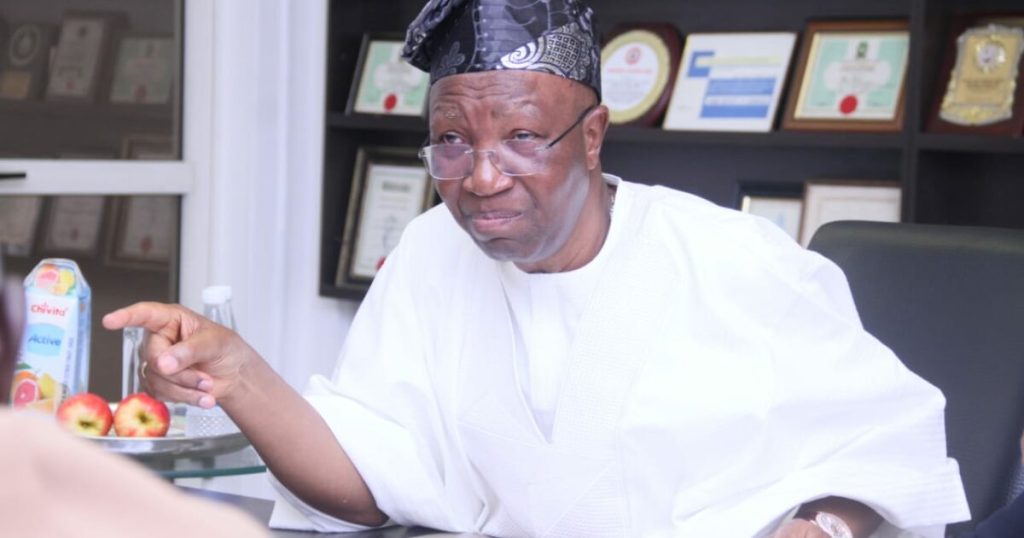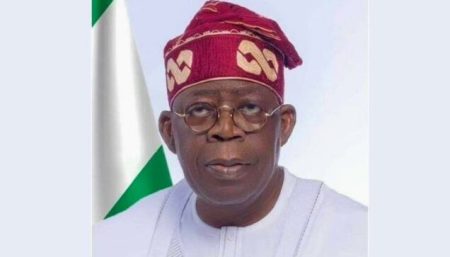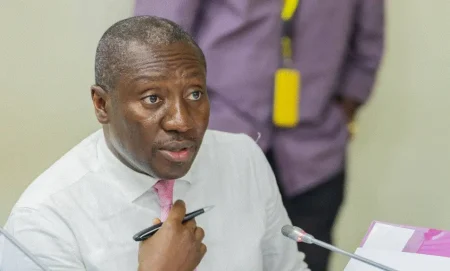Wole Olanipekun, a prominent legal figure and former Nigerian Bar Association President, has expressed deep concern over Nigeria’s increasing centralization of power, a trend he believes is eroding the principles of federalism and hindering national progress. He argues that this drift towards a unitary system, where the federal government holds dominant authority, negatively impacts various sectors, including security, education, the judiciary, and trade, creating inefficiencies and undermining the autonomy of state governments. Olanipekun contends that restructuring, based on a truly federal constitution, is essential to redress this imbalance and empower states to effectively address their unique challenges.
Olanipekun’s primary argument centers on the detrimental effects of centralized control on Nigeria’s security apparatus. He points out the impracticality of a single police force operating from Abuja and attempting to effectively maintain security across a geographically vast and diverse nation. He highlights the limitations of the Inspector General of Police overseeing security operations in distant states like Lagos or Ekiti from the capital. Drawing comparisons with other large nations, Olanipekun advocates for state police forces, arguing that local communities are better equipped to understand and address their specific security needs. He dismisses concerns about potential abuse of state police, asserting that such risks exist in any system and should not preclude the establishment of a more effective security structure tailored to local contexts.
The former NBA President extends his critique to the education and trade sectors, arguing that the current centralized system disadvantages both federal and state governments. He emphasizes the principle that states, being the foundational units of the federation, should have greater autonomy in managing these sectors. He uses the analogy of parentage to illustrate this point, arguing that the states, as the “parents” of the federal government, should not be subservient to the center. He laments the current situation where all powers and resources seem to flow towards Abuja, neglecting the needs and potential of individual states.
Olanipekun’s most pointed criticism is directed at the judiciary, which he considers the most centralized institution in Nigeria. He blames the 1999 Constitution for significantly diminishing the powers of state high courts, effectively reducing them to handling minor matters while empowering the Federal High Court to supplant their traditional roles. This centralization, he argues, originated with Decree 107 of 1993, promulgated by the late General Sani Abacha, and has been carried over almost verbatim into the 1999 Constitution. He argues that this structure undermines the autonomy of the states and hinders efficient judicial administration.
Furthermore, Olanipekun criticizes the establishment of the National Industrial Court, which handles labor disputes, arguing that it further encroaches on the jurisdiction of state high courts. He contends that forcing states to litigate labor disputes in a federal court, rather than their own state courts, contradicts the principles of federalism and creates unnecessary complexities. He points to the 1979 Constitution, which recognized the primacy of state high courts over the Federal High Court in most matters, as a model for a more balanced judicial structure.
The root of this centralized judicial structure, according to Olanipekun, lies in the actions of General Abacha following the annulment of the June 12, 1993, presidential election. When the Lagos State High Court nullified the Interim National Government established by Abacha, he reacted by enacting Decree 107, effectively stripping state high courts of significant powers and transferring them to the Federal High Court. This decree, Olanipekun asserts, continues to influence the judicial landscape today through Section 251 of the 1999 Constitution.
Olanipekun concludes by emphasizing the urgent need for constitutional amendments and a restructuring of the Nigerian federation. He criticizes the reluctance of stakeholders to address these fundamental issues, arguing that the current system, inherited from military rule, is unsustainable and detrimental to the nation’s progress. He advocates for a return to true federalism, where states have the autonomy and resources to manage their affairs effectively, fostering a more balanced and prosperous nation. He believes this restructuring is essential to address the challenges facing Nigeria and unlock the full potential of its diverse states.
Olanipekun’s arguments highlight a central tension in Nigerian governance – the balance of power between the federal government and the individual states. His critique of the current system calls for a fundamental re-evaluation of the Nigerian federation, urging a shift away from centralized control towards a more decentralized structure that empowers states and promotes effective governance at all levels. He believes this restructuring is not merely a legal or political exercise but a crucial step towards realizing the nation’s full potential and ensuring a more equitable and prosperous future for all Nigerians.














